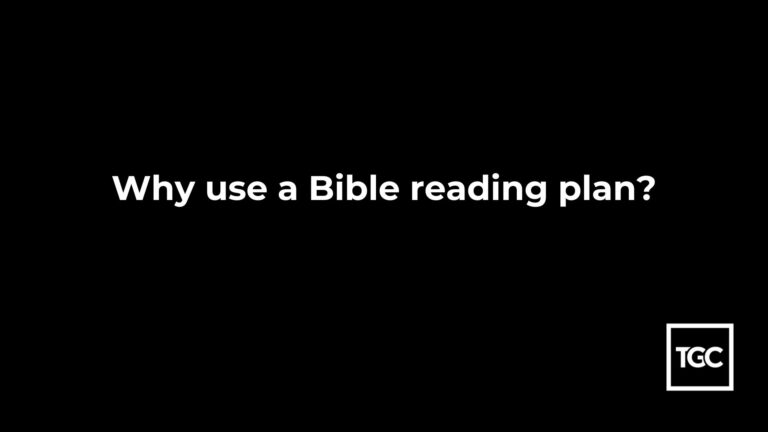Most Bible-reading Christians will admit that as a general rule, believers should be subject to the civil magistrate. Romans 13:1–2 states the principle and supports it with an associated warning:
“Let every person be subject to the governing authorities. For there is no authority except from God, and those that exist have been instituted by God. 2 Therefore whoever resists the authorities resists what God has appointed, and those who resist will incur judgment.” (Romans 13:1–2 ESV)
The Apostle Peter says something similar in his epistle, likely written during the reign of Nero Caesar:
“Be subject for the Lord’s sake to every human institution, whether it be to the emperor as supreme, 14 or to governors as sent by him to punish those who do evil and to praise those who do good.” (1 Peter 2:13–14 ESV)
Those same Bible reading Christians will likely point to the “exception clause” in Acts 5:27-32:
“And the high priest questioned them, 28 saying, “We strictly charged you not to teach in this name, yet here you have filled Jerusalem with your teaching, and you intend to bring this man’s blood upon us.” 29 But Peter and the apostles answered, “We must obey God rather than men. 30 The God of our fathers raised Jesus, whom you killed by hanging him on a tree. 31 God exalted him at his right hand as Leader and Savior, to give repentance to Israel and forgiveness of sins. 32 And we are witnesses to these things, and so is the Holy Spirit, whom God has given to those who obey him.”” (Acts 5:27–32 ESV)
We notice here that Peter; the same Apostle who said:
“Honor the emperor.” (1 Peter 2:17 ESV)
Here says:
“We must obey God rather than men.” (Acts 5:29 ESV)
Thus we have the recognized exception to the general rule:
If the government forbids us to do that which God commands, or requires us to do that which God forbids, we must obey God rather than men.
Few stories illustrate the Christian commitment to both the general rule and the recognized exception better than the story of Justin Martyr. Justin addressed his defence of Christianity to the Emperor Antoninus Pius. His goal was to gain, if possible, a wider permission for Christian practice and mission. However, as his name implies, Justin himself was martyred under the Emperor Marcus Aurelius. In the year 165 he, along with a number of other Christians, was brought before the prefect of Rome and required to offer sacrifice to the Roman gods.
He refused, along with his entire company, saying: “Do what you will, for we are Christians, and do not sacrifice to idols.” So they were led off to execution.[1]
A time may come when Christians in North America will need to be prepared to pay a price for their principled disobedience to the state – but is now that time?
Some evangelicals are saying that it is.
After all, the Bible commands us to gather together for Christian worship. Hebrews 10:24-25 says:
“And let us consider how to stir up one another to love and good works, 25 not neglecting to meet together, as is the habit of some, but encouraging one another, and all the more as you see the Day drawing near.” (Hebrews 10:24–25 ESV)
However, as Jonathan Leeman helpfully points out:
“An asymmetry exists in what it means to obey negative commands and positive commands. It’s always a sin to break a negative command like “you shall not steal.” There is however at least some flexibility on how and when we fulfill many of Scripture’s positive commands.”[2]
How often are we commanded to meet? How long may we defer meetings in the interests of public health? May we obey the command of the magistrate to temporarily pause large public worship gatherings as part of a community strategy to limit the spread of a virus such as COVID19?
For most of Christian history, the answer to that final question would have been yes.
In his book A Christian Directory, the old Puritan pastor Richard Baxter addresses this very issue:
Question 109: May we omit church-assemblies on the Lord’s day, if the magistrate forbid them?
Answer: 1. It is one thing to forbid them for a time, upon some special cause, (as infection by pestilence, fire, war, etc.) and another to forbid them statedly or profanely.[3]
Baxter distinguishes between a state which forbids worship statedly and profanely and a state which forbids worship temporarily for reasons related to the public good. He mentions specifically the case of infection by pestilence.
Similarly, Johannes von Ewich in the 16th century advised that magistrates, during a time of pestilence, were well within their rights to prohibit:
“public assemblies, games, feasts, drinkings, marriages, dancings, fairs, schools, churches, and public baths; for… there is also no small danger of getting and scattering the infection. Wherefore, wise men give counsel that at such times we should very seldom come into great companies of men.”[4]
Therefore, based on a common-sense reading of the applicable Scriptures and informed by the historic interpretation and application of the church, it does not yet appear as though we have reached the biblical threshold for civil disobedience with respect to the current restrictions related to COVID19.
So what would get us there?
It is good that we are talking about this. It would be wise for us to use the pressure of this pandemic to clarify our understanding of these principles. Toward that end, I offer my personal threshold for civil disobedience in a COVID19 world.
To be doubly clear – this is my personal threshold.
I am not speaking for my church; I am not speaking for TGC Canada, and I am certainly not speaking for the reformed world.
Consider this a scratching post or a starting place for a long-overdue conversation.
I believe that we would be justified in disobeying the government’s protocols with respect to COVID19 in the following circumstances:
1. If the restrictions obviously and maliciously targeted the church
If the movie theatres in my city were allowed to make use of 80% of their pre-COVID capacity whilst my church was only allowed 30% I would interpret that as compelling evidence of particular malice on behalf of the government.
But that isn’t the case.
In fact the opposite is true. In the city where I minister movie theatres are currently allowed a maximum of 50 people per room – whereas we are allowed 30% of our sanctuary capacity, assuming physical distancing. Given those parameters, we are able to seat nearly 230 people per service making our Sunday morning worship experiences the largest public gatherings in our town.
There is therefore no compelling evidence that the current COVID protocols have been designed specifically or maliciously to target the church.
However, should such evidence emerge, that would change the equation and that could justify some measure of civil disobedience.
2. If the restrictions absolutely and indefinitely forbade gathering for worship
As Leeman clarifies above, there is some flexibility when it comes to positive commandments. How often are we to celebrate the Lord’s Supper? The Bible doesn’t say exactly, it just says:
“Do this, as often as you drink it, in remembrance of me.” (1 Corinthians 11:25 ESV)
How many people must be present at our worship gatherings? Or what percentage of our total congregation must be present at a single worship gathering?
Again, these sorts of questions are not answered in the Bible and therefore it cannot be convincingly argued that a temporary pause on large worship gatherings would in fact justify disobeying the civil magistrate.
However, if the restriction became absolute and if it were extended for an indefinite length of time, the argument for civil disobedience would strengthen considerably.
3. If the restrictions appeared not to have been made in good faith
If the restrictions were said to be made in the interests of containing the virus but were in fact discovered to have been made in pursuit of other unstated and illegal aims then obviously it would be appropriate to engage in civil disobedience.
There is, however, absolutely no credible evidence of this being the case.
It truly does seem that these restrictions are being levied carefully and conscientiously toward the stated public aim of protecting the most vulnerable and stewarding the limited resources of the health care system.
Therefore, far from raising a cry of protest, Christians in this country ought to be setting an example of cheerful, patient endurance. And if that means that we draw the ire of our more rigorist friends and brethren, then so be it:
“For it is better to suffer for doing good, if that should be God’s will, than for doing evil.” (1 Peter 3:17 ESV)
SDG,
Pastor Paul Carter
N.B. Some of this material appeared in an earlier blog by the same author called “The Christian And The State”.
To listen to the most recent episodes of Pastor Paul’s Into The Word devotional podcast on the TGC Canada website see here. You can also find it on iTunes. To access the entire library of available episodes see here.
[1] F.F. Bruce, The Spreading Flame, (Exeter: The Paternoster Press, 1978), 177.
[2] https://www.9marks.org/article/the-government-says-we-cant-sing-what-should-we-do-a-forum/
















